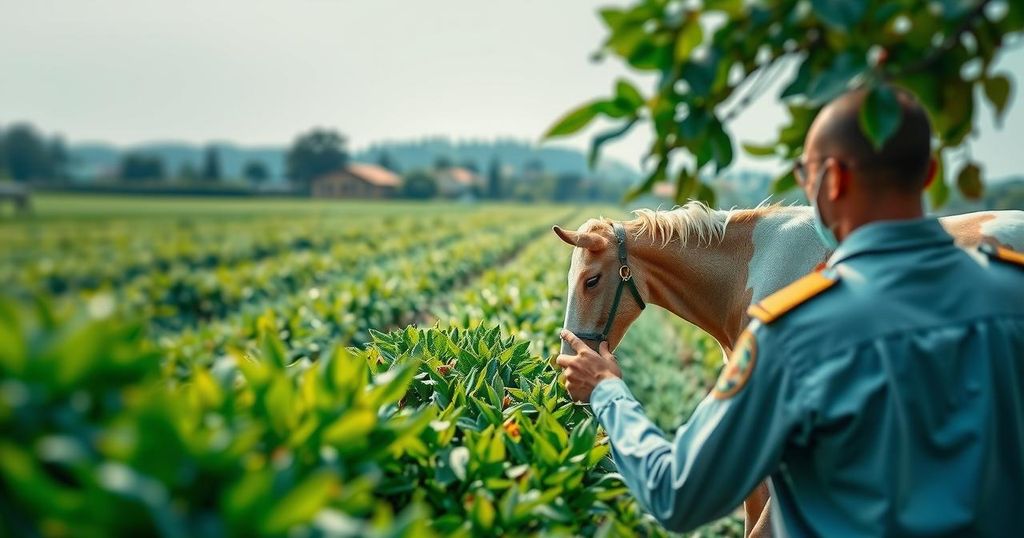COP30 is expected to focus on agriculture’s dual role in climate change as a contributor and victim. The FAO aims to advocate for agricultural discussions, emphasizing the need for tailored support and technology for farmers. COP29 produced mixed results, with progress in carbon trading and commitments regarding methane emissions, yet crucial issues like deforestation remain unaddressed. The upcoming conference must prioritize a “Just Transition” to effectively support farmers, especially in developing regions.
The imminent United Nations Climate Change Conference (COP30), slated to take place in Belem, Brazil, is expected to prominently feature agriculture in its agenda. This is largely driven by the dual role agriculture plays as both a contributor to climate change and as a sector severely affected by its consequences. Current agricultural practices, including deforestation and livestock farming, account for approximately 10-12% of worldwide greenhouse gas emissions. Furthermore, agriculture’s vulnerability is underscored by the fact that a mere 1°C increase in global temperature can precipitate a 10-20% decline in wheat production, significantly jeopardizing global food security amidst a growing population and rising temperatures.
The Food and Agriculture Organization (FAO) plays a crucial role in advocating for agricultural issues at climate conferences. COP29 served as a critical forum for dialogue on the intersection of agriculture, food systems, and climate change; the FAO stated, “agrifood system solutions are climate solutions.” This sentiment reflects the understanding that addressing agricultural practices is integral to mitigating climate change impacts.
At COP29, significant discussions focused on the linkage between technology, climate financing, and agricultural practices. Notable advancements included the establishment of guidelines for carbon trading between nations and the operationalization of the Loss and Damage Fund, which aims to assist vulnerable farmers affected by climate-related changes. However, while initiatives like the Baku Harmoniya Climate Initiative for Farmers were unveiled to streamline climate action for farmers, no formal commitments were made.
Moreover, the Reducing Methane from Organic Waste Declaration emerged from COP29, with over 30 states committing to reduce methane emissions, which are not as widely discussed as CO2 emissions. Unfortunately, the issue of tropical deforestation was markedly absent from the agenda, denying the opportunity for new pacts to be developed to address this critical concern, which contributes to 20% of human-induced CO2 emissions.
As COP30 approaches, the concept of “Just Transition” must become a prominent theme within agricultural discussions. It is essential to secure not only technological support but also necessary financing for farmers, particularly in developing nations like India, which boasts 15 diverse agro-climatic zones. Contextual analyses of solutions tailored to specific regions and crops will underpin successful climate-resilient agricultural practices.
In summary, there is hope that the next COP session will yield transformative outcomes for farmers worldwide, especially those in India and the Global South, ensuring a balanced approach to tackling climate challenges while supporting agricultural sustainability.
The upcoming COP30 conference is significant due to agriculture’s critical role in both contributing to and suffering from climate change. Farmers face increasing pressures due to environmental shifts, necessitating a focus on sustainable practices and financial support. The FAO plays a vital role in advocating for agricultural discussions at COP events, underlining agriculture’s importance in combating climate change. Previous conferences have highlighted progress in carbon trading and financing, yet key areas such as tropical deforestation still require attention, necessitating an inclusive and comprehensive agenda at COP30 that addresses the diverse needs of farmers across various climates. The discussions at COP29 set the stage for COP30’s agenda, emphasizing the need for tailored solutions to specific agricultural contexts and ensuring that climate action initiatives are equitable and effective in supporting vulnerable farming communities.
The anticipated outcomes of COP30 hold the potential to significantly benefit farmers globally, particularly those in developing countries such as India. Centralizing agriculture in climate discussions is paramount for fostering sustainable practices and addressing food security challenges exacerbated by climate change. Emphasizing a “Just Transition” within climate policy is necessary to ensure that farmers receive the adequate support and resources needed for adaptation and resilience in the face of environmental changes. Contextualizing agricultural solutions will be vital for achieving progress towards climate-focused agricultural practices.
Original Source: www.outlookbusiness.com






